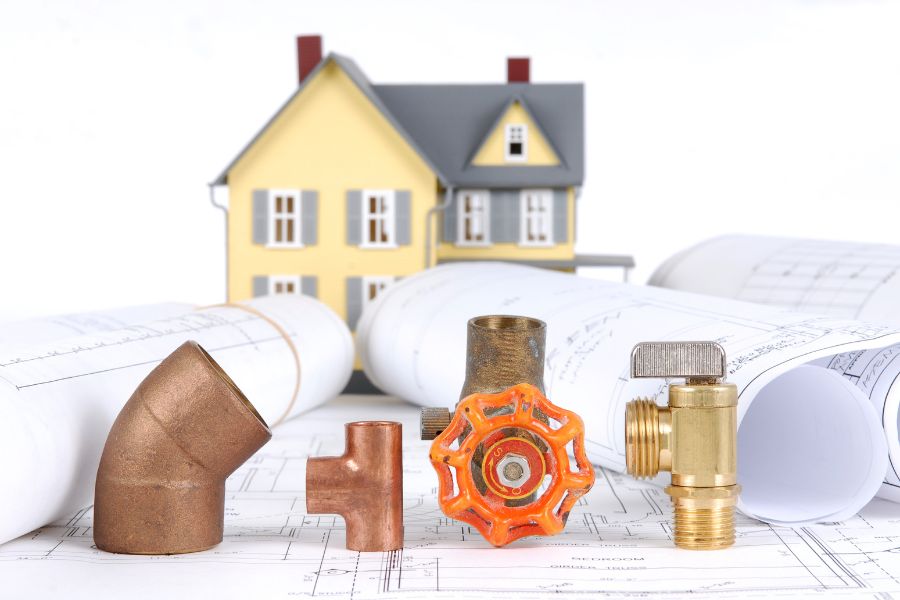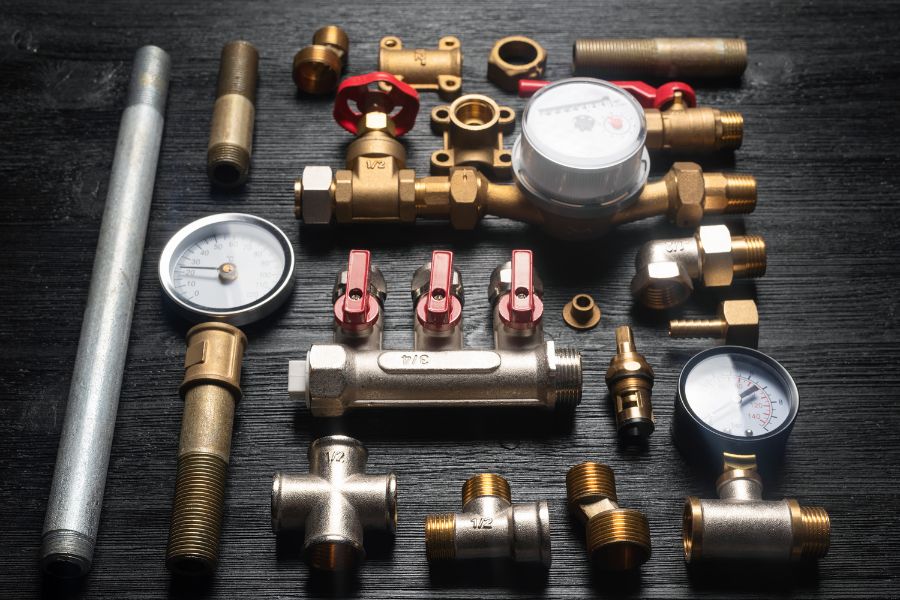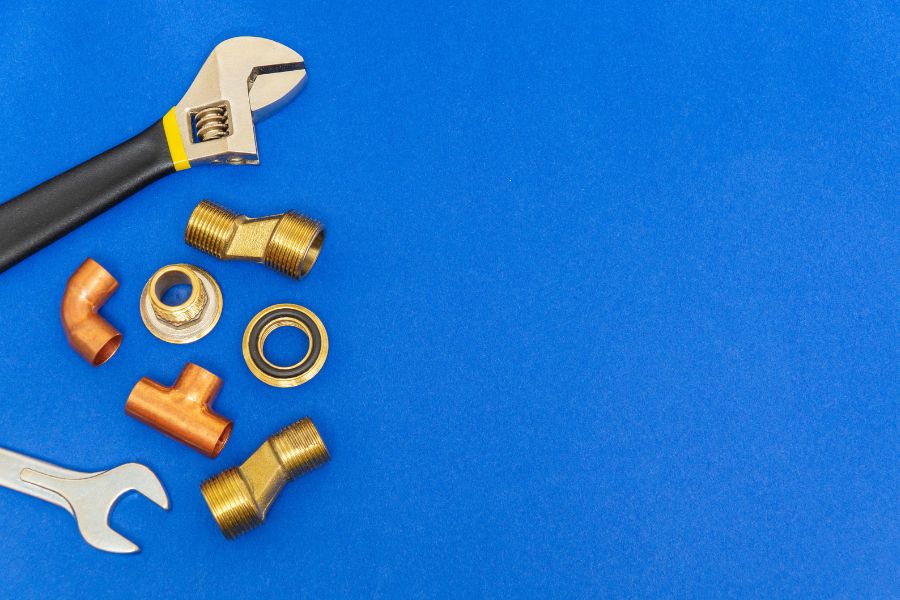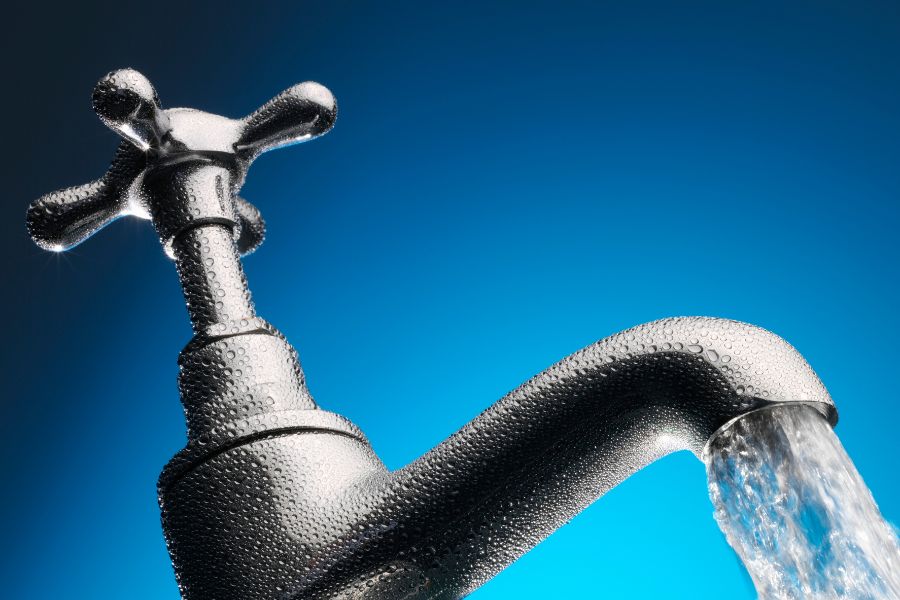Finding the Best Plumbers in Alexandria VA & Manassas for Your Plumbing Needs
Water is an essential resource, and its quality directly impacts our health and the overall wellbeing of our household. Installing a water filter can significantly improve the quality of water we consume daily. However, with numerous options available in the market, choosing a suitable water filter can be challenging.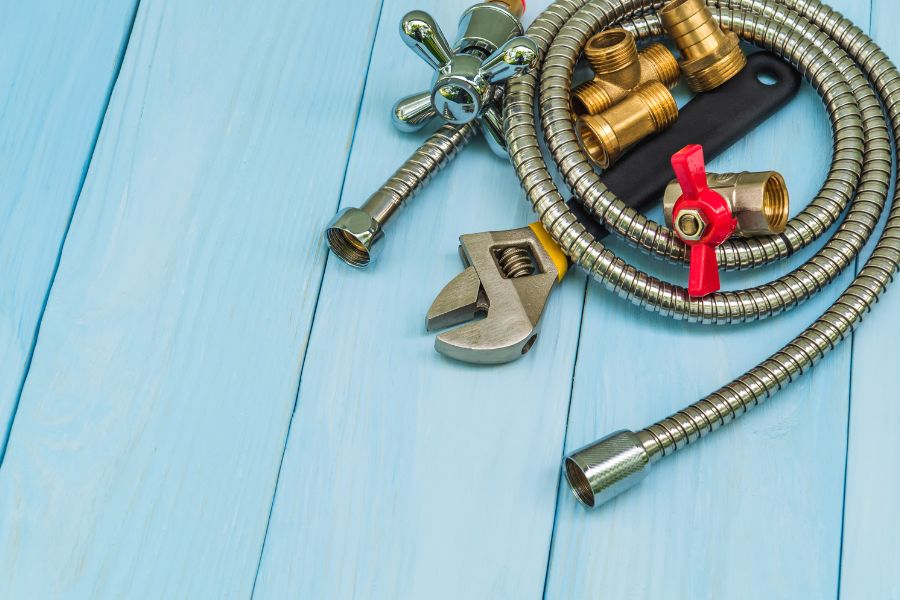
To help you identify the best water filter for your household needs, there are several key factors you need to consider:
- Water Quality
The first step in choosing a water filter is to determine the quality of your local water supply. This will help you understand which contaminants or impurities need to be filtered out. You can request a report from your local water provider or conduct a home test using a DIY kit.
- Types of Water Filters
Different types of water filters are designed to remove specific contaminants.
- Activated Carbon Filtersare effective in removing organic compounds, chlorine, and improve taste and odor.
- Reverse Osmosis Filtersremove almost all contaminants but require more maintenance.
- UV Filterskill bacteria and other microorganisms but do not remove chemical contaminants.
- Ceramic Filterseffectively eliminate bacteria and sediment but do not filter out chemical contaminants.
- Filter Size
The size of the filter plays an important role in determining its capacity and lifespan. Larger filters have longer lifespans as they don’t clog as easily as smaller filters.
- Budget Considerations
Your budget is an essential factor when choosing a water filter. Initial cost, maintenance costs (including replacement cartridge cost), and energy consumption should all be considered while deciding on a filter that fits within your budget.
- Installation Process
Some filters require professional installation while others come with easy-to-follow instructions for DIY installation. Depending on your comfort level with home improvements, this could influence your choice.
Choosing the most suitable water filter requires careful consideration of various factors. By understanding your water quality, becoming familiar with different types of filters, factoring in size and budget, and considering installation process, you can make an informed decision that best meets your household’s needs. Remember, quality water is not only essential for health but also enhances the taste of food and beverages prepared at home. So take the time to choose wisely.
The quality of water we consume significantly impacts our health, making the choice of an ideal water filter crucial. Here is a comprehensive guide on how to select the best water filter for your home, taking into account various factors that can influence your purchasing decision.
Finding the Right Plumber in Alexandria VA
J Hood Plumbing in Alexandria VA:
https://www.jhoodservices.com/alexandria-va-plumbing-company
J. Hood Plumbing in Manassas VA:
https://www.jhoodservices.com/manassas-va-plumbing-company
Before choosing a water filter, it’s essential to understand your water source. The source can greatly influence the kind of contaminants in your water. For instance, if you use well water, you could be dealing with hard minerals and bacteria. On the other hand, municipal water usually contains chlorine and fluoride.
- Well Water: Filters that are specially designed for well water typically focus on removing heavy metals, bacteria, and viruses.
- Municipal Water: Filters designed for municipal or city tap water often remove chloramines and chlorine.
Finding the Best Alexandria VA Plumber for Your Plumbing Needs
Knowing what contaminants are present in your water is vital in determining which type of filter will work best. Consider having a professional lab test conducted on your tap or well water to identify any potential concerns.
Understanding Plumbing in Alexandria VA
How much filtered drinking water does your household use daily? It’s important to select a filter with a filtration rate that can comfortably accommodate your household’s daily consumption rate. If you choose one with a low filtration rate, you may frequently run out of clean drinking water.
Top Plumbing Companies in Alexandria VA
There are several types of filters available on the market; some are meant for specific purposes while others offer general filtration solutions.
- Activated Carbon Filters: These are efficient at removing large particles like sediment and silt from water. They’re also good at removing chlorine, volatile organic compounds (VOCs), and improve taste.
- Reverse Osmosis (RO) Systems: RO systems offer comprehensive filtering solutions by removing most contaminants present in water, including heavy metals and bacteria.
- Alkaline/Water IonizersThis results in softer water.
- Infrared filters: These are used to soften hard water by adding heat and negatively charged ions to the water.
Plumbing Services in Alexandria VA
Lastly, consider the maintenance requirements of the filter system you are interested in. Some require regular replacement of filter cartridges which can add to the overall cost and effort required.
Choosing a home water filter requires careful consideration of several factors. By understanding your water source, identifying potential contaminants, recognizing your household’s filtration needs, exploring various filter options, and being aware of maintenance requirements, you can make an informed decision that ensures the health of your household is well guarded.
In our day-to-day life, there are numerous ways to improve our living experiences. Specifically, in the context of home improvement and maintenance, significant enhancements can be achieved through small, incremental changes. Here are some key lifestyle tips that can add value to your daily living experience.
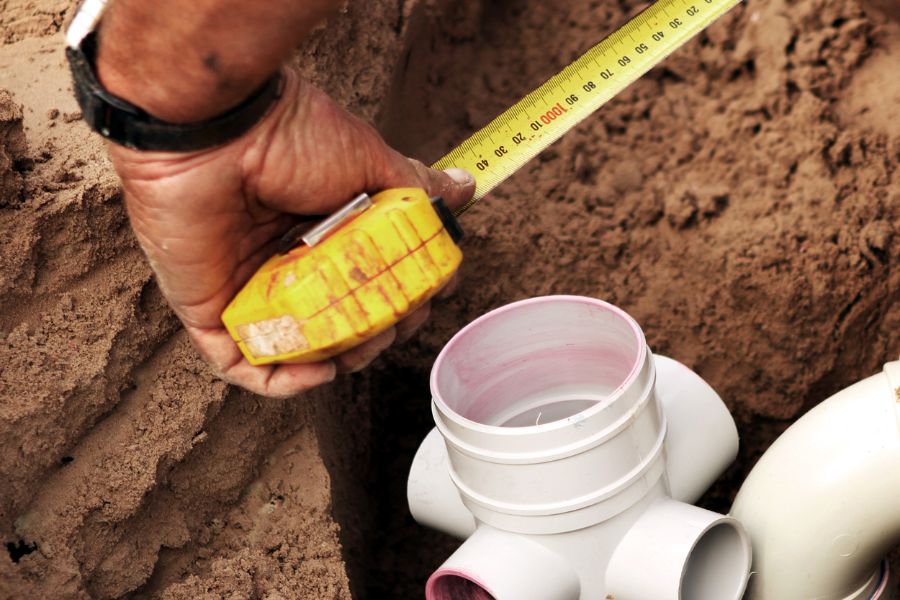
Finding the Best Plumbing Contractors in Alexandria VA
By creating and adhering to a proactive maintenance schedule for your home, you can avoid many unforeseen issues that might arise due to negligence or lack of attention. This includes regular checks on your heating systems and plumbing, ensuring that all electrical appliances are functioning correctly, and keeping your home clean and organized.
- Weekly: Check all drains for slow drainage or blockages. Ensure all lights and electrical appliances are functioning correctly.
- Monthly: Inspect heating systems for any irregularities. Clean the dishwasher filter.
- Yearly: Get a professional to inspect the roof, chimney, gutters and downspouts.
Efficient Plumbing Services in Alexandria VA
Being mindful about water usage is not just environmentally friendly– it can also lead to substantial savings on your utility bills:
- Use low-flow showerheads and faucets.
- Regularly check for leaks in taps and pipes.
- Use dishwashers or washing machines only when full.
Enhancing Indoor Air Quality
Often overlooked, indoor air quality is vital for a healthy living environment:
- Regular cleaning: Keeping your house clean helps reduce dust mites & allergens.
- Ventilation: Make sure there’s enough ventilation in high-moisture areas like bathrooms & kitchens.
- Air filters: Regularly change the filters on your HVAC system.
Incorporating Smart Home Technology
Smart home technology can not only bring convenience but also enhance security:
| Smart Home Essentials | How They Add Value |
| Smart Thermostats | Allow automated temperature control which can reduce energy consumption. |
| Security Cameras | Enhance home security, provide real-time monitoring. |
| Smart Lighting | Helps reduce energy consumption, can be controlled remotely. |
Prioritizing Sustainability
Making sustainable choices for your home is a responsible and cost-effective approach:
- Opt for energy-efficient appliances
- Incorporate renewable energy solutions like solar panels
- Use sustainable materials during renovations or repairs.
These value-adding lifestyle tips can significantly improve your living experiences by ensuring a well-maintained, efficient, and sustainable home environment. Remember, small changes can make a big difference in enhancing your daily life and contributing to a green future.
The National Sanitation Foundation (NSF) is a critical player in the world of water purity, providing essential guidelines and certification to ensure our water systems are safe. To make informed choices about your household water quality and plumbing needs, it is crucial to understand how NSF can assist you.
Understanding the Role of NSF
NSF International is an independent public health and safety organization that tests, audits, and certifies products to protect the world’s food, water, consumer products, and environment.
- Developing public health standards.
- Testing and certifying products to these standards.
- Providing auditing services to verify compliance with standards.
This means they have a comprehensive set of criteria for evaluating the safety and efficacy of water purification systems.
Impact on Your Water Quality Choices
When discussing water filters or any other product that affects your home’s water quality, you will often see references to NSF certifications. These certifications can help you make more informed choices about the technologies and products you use in your home.
- NSF/ANSI Standard 42: This standard covers aesthetic effects such as reducing chlorine taste or odor. If a filter has this certification, it means it improves the taste and odor of drinking water.
- NSF/ANSI Standard 53: This standard covers health effects such as reducing contaminants like lead or mercury. Filters with this certification reduce specific health-related contaminants in drinking water.
- NSF/ANSI Standard 58: Certifies Reverse Osmosis (RO) treatment systems that reduce contaminants harmful for human health.
When purchasing a filtration system or any other device related to your household’s water supply, looking for these certifications can help ensure that you’re investing in a product that will effectively serve its intended purpose.
How NSF Assists You
Indeed, recognizing NSF certified products is one key way that NSF can assist you in making informed choices. Moreover, NSF provides a wealth of resources and toolkits to help consumers understand the world of water purity.
- Product Database: NSF’s online product database lists all products that have met their certification standards.
- Consumer Information: NSF provides a wide variety of consumer information regarding water quality and safety issues.
- Educational Resources: NSF offers free educational resources about various public health and safety topics.
Understanding the role and impact of NSF is crucial when making choices related to your household’s water supply. By looking for NSF certifications and utilizing the resources they offer, you can ensure you are making decisions that will provide safe, high-quality water for your household.
The plumbing industry has witnessed significant developments over the past few decades. One of the groundbreaking enterprises leading this evolution is PSILab, Inc. This article delves into the advanced plastic pipe and materials testing methods by PSILab, Inc. , and their implications in the plumbing industry.
The Significance of Advanced Plastic and Materials Testing
Exploiting advanced technologies for plastic pipe and materials testing is pivotal to maintaining quality standards within the plumbing industry. These include unprecedented precision, durability, and efficiency that are critical for both domestic and commercial applications.
- It ensures compliance with regulatory standards.
- It helps in determining the product’s suitability for specific applications.
- It enables early detection of potential points of failure.
- It contributes to enhanced product durability.
An Overview of PSILab, Inc.
PSILab, Inc. stands as an independent testing laboratory specializing in polymeric materials used in pressurized piping systems. The company provides a variety of services from routine quality control testing to specialized consulting services involving failure analysis, design validation, and other related areas.
Their primary focus lies on plastics that are used extensively in various sectors like water management systems, gas pipelines, industrial piping systems among others.
Key Services by PSILab, Inc.
PSILab offers a wide range of services catered towards ensuring pipes’ sustainability within diverse applications:
- Quality control tests: These tests ensure that manufactured components adhere to specified standards.
- Failure Analysis: This involves identifying potential failure points by subjecting materials to different stress conditions.
- Product Development Support: PSILab provides expert advice on choosing appropriate materials during product development stages.
Innovation at the Heart
PSILab’s commitment to innovation makes them an invaluable asset to the industry. They continuously adapt methods by incorporating state-of-the-art technologies in their testing procedures to meet clients’ varying needs. Their innovative techniques facilitate more accurate test results, providing valuable insights to manufacturers and consumers alike.
Industry Impact
With their rigorous testing methodologies and commitment to quality, PSILab has made a significant impact on the plumbing industry. For manufacturers, their services translate into more reliable products and reduced operational costs. For consumers, this means access to safer, more efficient plumbing solutions.
Partnering with PSILab
In closing, partnering with PSILab can be beneficial for both manufacturers and consumers. Their thorough approach towards material testing ensures high-quality output, thus fostering trust among consumers while enhancing the reputation of manufacturers in the market. As we continue to witness rapid advancements in technology, laboratories like PSILab will continue to be instrumental in setting new standards for quality assurance within the plumbing industry.
- Finding the Best Plumbers in Alexandria VA for Your Plumbing Needs
- Essential Guide to Choosing Plumbers in Alexandria VA for Premier Alexandria VA Plumbing Solutions and Home Water Filters
- Discovering the Best Plumbers in Manassas VA
- Discovering the Best Plumbers in Manassas VA: A Comprehensive Guide
- Exploring the Best Plumbers in Manassas VA: An In-depth Guide
